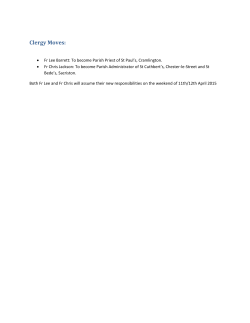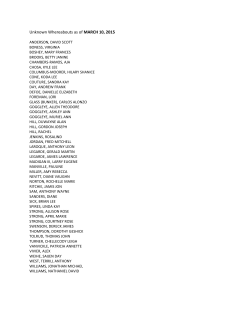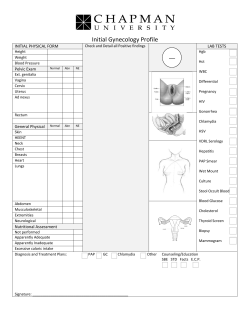
`Political Fundamentals, Vision will Remain`
‘Political Fundamentals, Vision will Remain’ But analysts say more vocal electorate means PAP must continue to demonstrate relevance of one-party dominance Teo Xuanwei and Laura Elizabeth Philomin TODAY, 24 March 2015 Singapore — While Mr Lee Kuan Yew’s death will leave an unfillable void in Singapore politics, the systems which he had institutionalised means no major political impact will be felt, observers say. In terms of running the country, both Prime Ministers who succeeded him have been able to establish their own styles despite Mr Lee operating in the background up till he stepped down from Cabinet in 2011, noted analysts and Members of Parliament past and present. As for party politics and competition, they added that the People’s Action Party’s (PAP) approach has been gradually shifting over the years, while an increasingly vocal electorate is not a new development. “(Mr Lee) had a strong influence but the succeeding Cabinets called the shots and took responsibility for the decisions made and choices taken,” said Associate Professor Eugene Tan, from the Singapore Management University. “Sure, there will be changes but it is not because of his passing. The political fundamentals will remain, not because they are treated as infallible political dogma but rather because the present leadership and Singaporeans believe in them.” Dr Tan Ern Ser from the National University of Singapore (NUS) added: “To his credit, Mr Lee Kuan Yew had established good working institutions and values which will continue for some time to come.” Agreeing that there will be “no fundamental shifts”, NUS political science don Bilveer Singh said that Mr Lee had prepared Singapore and the PAP for his departure from the political scene since he was still Prime Minister by drumming home the importance of leadership renewal. FACTIONS TALK DISMISSED Although Mr Lee had taken a backseat since he passed the baton to Mr Goh Chok Tong in 1990, questions have remained on the influence he wielded over the leadership and the workings of the PAP. But observers dismissed suggestions that Mr Lee’s death will herald a radical change in tack in its political philosophy, citing how the PAP’s approach has gradually changed. The shift, however, was driven by the changing demands of the electorate over the years, and which have become more pronounced with the emergence of new media, they added. Veteran MP (Ang Mo Kio Group Representation Constituency) Inderjit Singh said that the basic guiding principles of the PAP, such as meritocracy and incorruptibility, have not changed. “What has changed is the approach taken — more consultative. That’s what the people demand. Other than that, I don’t see any big shift,” he said. Former Bukit Timah MP Wang Kai Yuen added: “There’s an appreciation of the importance of harmony between various segments of society that has been expressed in terms of policy and public statements by leaders.” Noting that shifts have been taking place under the watch of Mr Goh and current Prime Minister Lee Hsien Loong, Assoc Prof Eugene Tan said: “We see that most evidently in the social policy sphere. There may be the greater willingness to examine sacred cows in various policies but to suggest that some policies were untouchable while Mr Lee was alive is not to give sufficient credit to the current leadership.” Former Kampong Kembangan and Tampines MP Yatiman Yusof added: “I do not see any possibility of the leadership splitting because they share the same vision as Mr Lee.” Dr Bilveer Singh also noted that the PAP, having faced little serious threat from the Opposition, knows that “the only way the PAP can lose power is if it destroys itself from within”. He added: “There will always be differences in personalities but I don’t think there will ever be factions within the party. The leaders won’t allow it.” Still, observers acknowledged that Singaporeans could react differently to politics in the post-Lee Kuan Yew era. Dr Wang, for instance, pointed to the possibility of more political aspirants emerging in the coming years. Agreeing, Mr Inderjit Singh said new media has made the public “more willing to challenge openly”, adding that the PAP “should be prepared” for more people to step forward in the political arena. Assoc Prof Eugene Tan added that the PAP will have to “continue to demonstrate why oneparty dominance is still relevant and effective going forward”. “Political liberalisation will continue — it has to, given the more competitive political landscape and Singaporeans’ desire for more political diversity,” he said. “There will be contestation over the degree and pace of change. The PAP government will seek to manage the pace and pursue an incremental approach. They will have to demonstrate why that is the preferred approach.” LOSS OF A STATESMAN Beyond domestic politics, Mr Lee’s presence had also loomed large on the world stage, raising questions of how the death of the widely-respected statesman will impact on Singapore’s standing on the global stage. Veteran diplomat and Ambassador-at-Large Bilahari Kausikan agreed that Mr Lee was “unique” and that “there will never be another like him”. But the country’s foreign relations will not suffer because of his death, he said. “I think what he is unique is that unlike almost every other nationalist leader of his generation, he put into place a system,” he told TODAY. “We do not have the genius of Mr Lee but we have a system. So collectively we can still ... try not to be taken in by rhetoric; try to cut to the core; try to focus on what is in essence Singapore’s interest at any particular time.” He added: “Our leaders are well-respected around the world; their views are sought. Our diplomats are well-respected around the world (and) their views are sought so I think the system he put in place will go on.” Dr Bilveer Singh agreed: “World leaders respected Mr Lee for what he is ... his going will be missed but that doesn’t mean the country will be paralysed. What we will lose is the charisma of a major international voice but a system is already in place.” Assoc Prof Eugene Tan, however, felt that Mr Lee’s loss will be “deeply felt on the global stage” despite Singapore’s foreign policy “not (being) Lee Kuan Yew-centric at all”. “The respect and admiration that foreign leaders have of him and of Singapore’s transformation under Mr Lee’s leadership meant that he had access to the world’s leaders. And they were keen to have the benefit of his analysis and advice. We became a cipher of regional developments and made ourselves relevant to regional and global affairs,” he said. “He was more than just Singapore’s most effective and well-known ambassador, so his passing raises legitimate questions of whether we will have another senior leader who will have the (same) gravitas and intellectual bandwidth.”
© Copyright 2025













